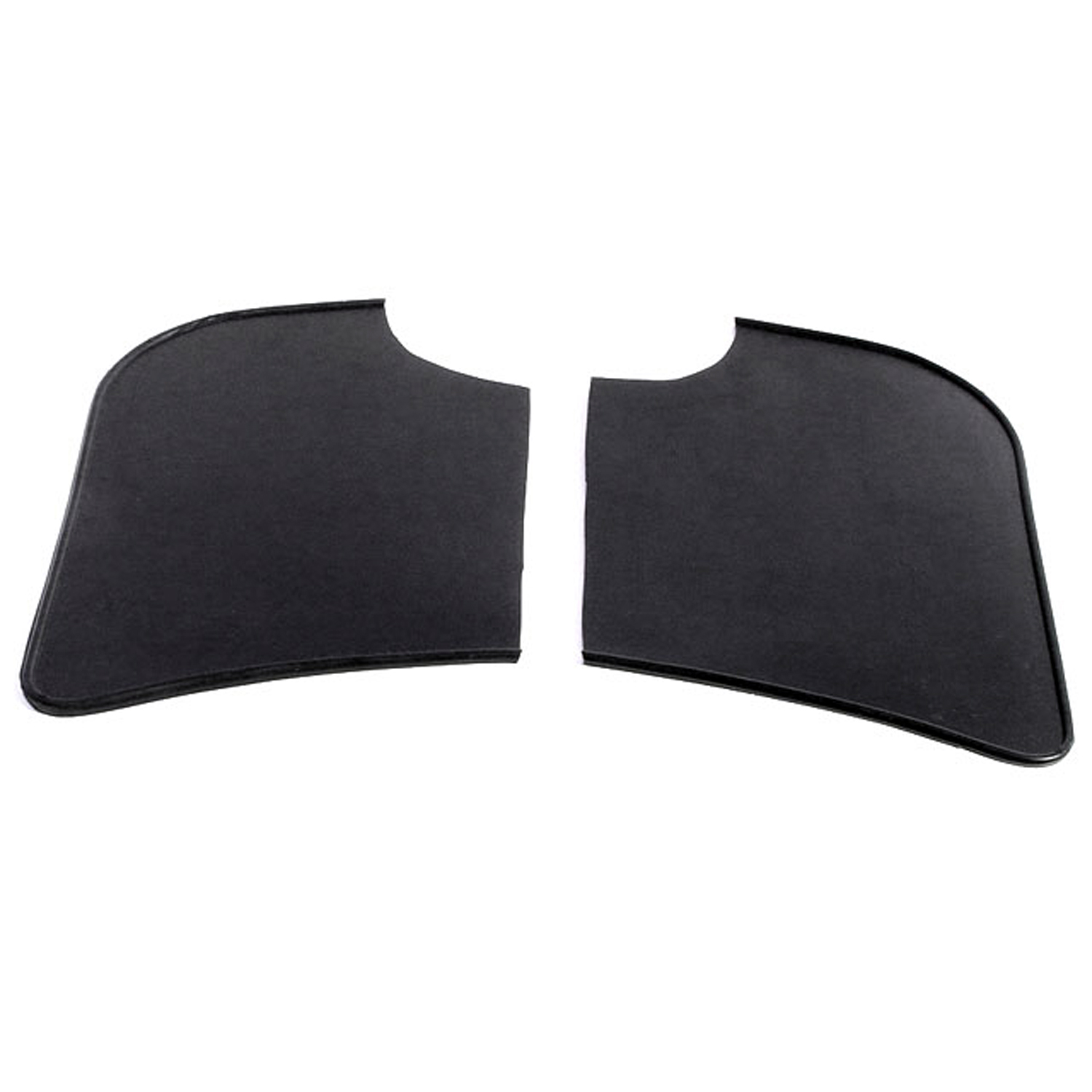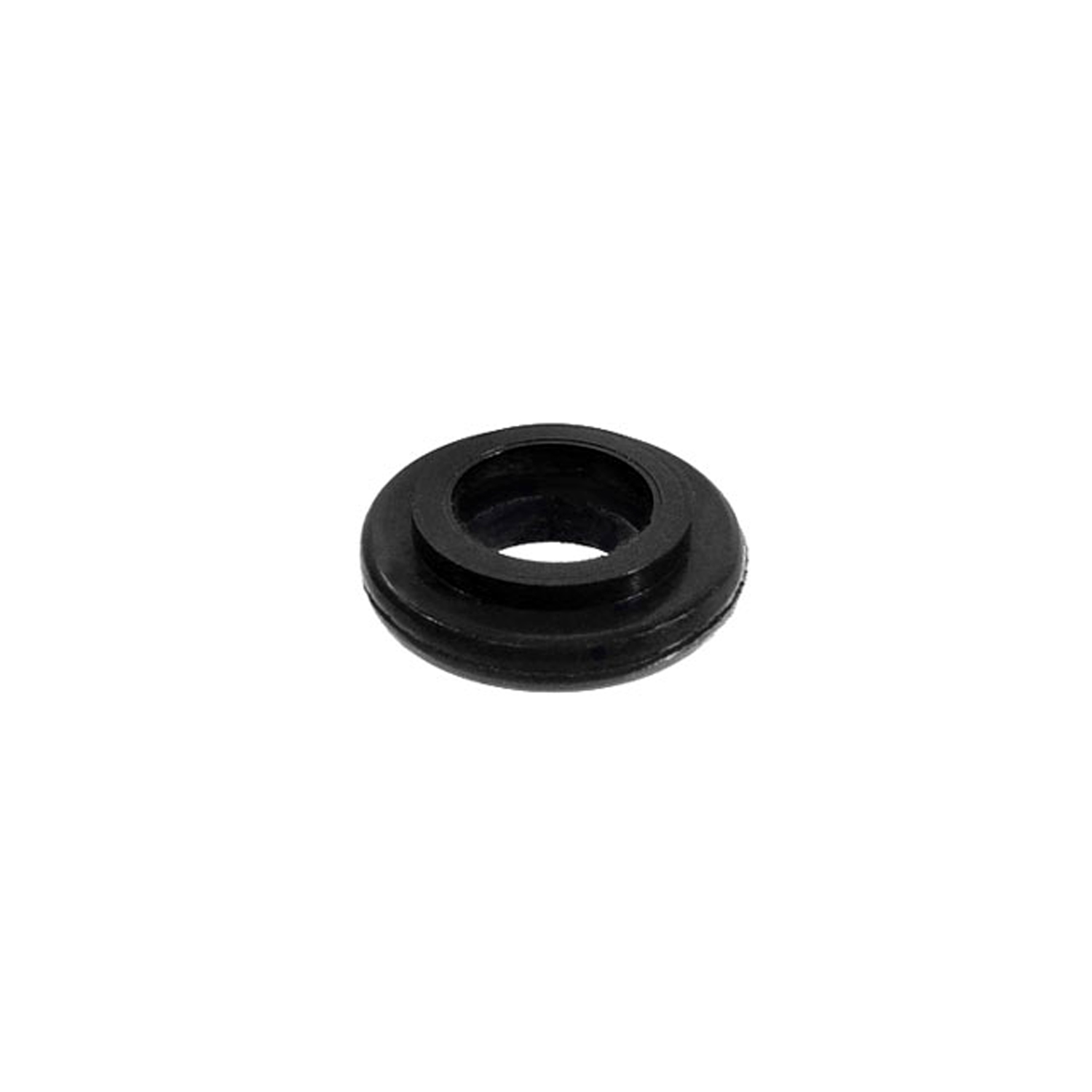Image of 1965 Volkswagen Karmann Ghia, Note: These illustrations use artistic license and may differ from actual historical models.
Performance Metrics
Fundamental Metrics
Emotional Appeal
MMP Rating
| Engine Specifications | |
|---|---|
| Engine: | Air-cooled, rear-mounted, flat-four engine |
| Displacement: | 1192cc to 1493cc |
| Horsepower: | 40hp to 50hp |
| Torque: | 65 lb-ft to 70 lb-ft |
| Compression Ratio: | 7.5:1 |
| Ignition System: | Distributor ignition system |
| Cooling System: | Air-cooled |
| Performance Specifications | |
| 0-60 Time: | 22 seconds |
| 1/4 Mile Time: | 20 seconds |
| Top Speed: | 80 mph |
| Transmission and Drive | |
| Drive Type: | Rear-wheel drive |
| Transmission Type: | 4-speed manual |
| Fuel and Efficiency | |
| Fuel System Type: | Carburetor |
| MPG: | 25-30 MPG |
| Dimensions and Brakes | |
| Brakes: | Drum brakes on both front and rear |
| Wheelbase: | 94.5 inches |
| Weight: | 1,800 lbs |
Note: Specifications for classic cars are given to the best of our ability, considering the limited and variant data available.
A Timeless Beauty: The 1965 Volkswagen Karmann Ghia
The 1965 Volkswagen Karmann Ghia is not merely a car; it's a rolling sculpture that embodies the optimism and design prowess of the 1960s. Born from a collaboration between German automaker Volkswagen, Italian styling house Ghia, and German coachbuilder Karmann, this vehicle stands as a testament to cross-cultural innovation. Its sleek lines and curvaceous body were a departure from the utilitarian design of VW's Beetle, capturing hearts with its aesthetic appeal. A unique fact about the Karmann Ghia is that it was never officially named by Volkswagen—instead, it inherited the names of the companies that crafted it.
Design and Innovation
The exterior of the Karmann Ghia is characterized by its long hood, elegant curves, and low-slung silhouette—a design so captivating that it remained largely unchanged throughout its production run. Inside, occupants were greeted with a cabin that echoed the simplicity of its Beetle sibling but with a touch more panache. The materials, though not luxurious, were durable and well-fitted, reflecting German practicality with an Italian flair. Technological features were modest; after all, this was a car designed for style rather than cutting-edge innovation. However, its fully synchronized four-speed manual transmission was notable for providing smooth gear changes—a pleasure for drivers of the era.
Color options ranged from vibrant to subdued, with Sea Blue and Ruby Red being among the popular choices that accentuated its contours. While coupes were more common, the convertible variant offered open-air exhilaration and is now particularly sought after by collectors.
Historical Significance
The Karmann Ghia may not have introduced groundbreaking technology, but it did break molds in automotive design. It showed that Volkswagen could produce something beautiful and desirable beyond the practicality of their Beetle. Its design has inspired countless cars since, becoming an icon of 1960s automotive culture.
Performance and Handling
Performance-wise, the 1965 Karmann Ghia was no powerhouse. Its air-cooled 1.2-liter flat-four engine produced modest horsepower, propelling it to a top speed around 80 mph. Acceleration from 0-60 mph was a leisurely affair by modern standards. Yet handling was nimble thanks to its lightweight construction and balanced weight distribution. Drivers often speak of the tactile feedback through the thin steering wheel and how every turn of the road feels intimate and engaging.
Ownership Experience
The Karmann Ghia found its niche as a stylish daily driver and weekend showpiece. Its mechanical underpinnings shared with the Beetle made maintenance straightforward for those familiar with VW's engineering. Reliability was commendable if properly maintained, though rust could be an adversary for neglected examples.
Fun Facts
A lesser-known fact about the Karmann Ghia is that less than 10 "Type 34" models featured electric sunroofs—an extremely rare option for this model year. Celebrity ownerships include Grace Kelly and Walt Disney, adding to its allure. While it never broke speed records, it certainly set benchmarks for style.
Collector's Information
Today's collector market sees the 1965 Karmann Ghia in various states—from pristine show cars to lovingly maintained drivers. With over 445,000 units produced throughout its run (1955-1974), rarity varies by condition and model year. Pristine examples can fetch upwards of $30,000 or more depending on provenance and originality, while project cars may be found for around $5,000 to $10,000. The market has shown appreciation for well-maintained Ghias over time.
Conclusion
The 1965 Volkswagen Karmann Ghia stands as more than just another classic car—it's a piece of art on wheels that continues to captivate enthusiasts and collectors alike. With its timeless design and endearing driving characteristics, it remains an enduring symbol of 1960s automotive elegance.
1965 Volkswagen Karmann Ghia Catalog of Parts
 1965 Volkswagen Karmann Ghia Gravel Shields. Molded flat without metal backing plates-FS 40Gravel Shields. Molded flat without metal backing plates. Apply with contact cement. 7-5/8" long X 5-5/8" wide at top. Pair
1965 Volkswagen Karmann Ghia Gravel Shields. Molded flat without metal backing plates-FS 40Gravel Shields. Molded flat without metal backing plates. Apply with contact cement. 7-5/8" long X 5-5/8" wide at top. Pair 1965 Volkswagen Karmann Ghia Oil Cooler Seal. 7/16" I.D., 7/8" O.D. Each-RP 8-BOil Cooler Seal. 7/16" I.D., 7/8" O.D. Each
1965 Volkswagen Karmann Ghia Oil Cooler Seal. 7/16" I.D., 7/8" O.D. Each-RP 8-BOil Cooler Seal. 7/16" I.D., 7/8" O.D. EachWhy Choose Metro?
For over 100 years, Metro Moulded Parts has been the pinnacle of quality in classic car restoration parts. Our commitment to precision and authenticity in every component ensures a perfect fit and an OEM-level appearance.
- Expert Craftsmanship & Quality: Each part is a testament to our dedication to reliability and perfection, crafted from original designs and thoroughly tested.
- Advanced Technology: We use cutting-edge techniques to create flawless, long-lasting parts that surpass others in performance.
- SuperSoft Sponge – The Ultimate Door Seal: Not only are our door seals 30% softer than competitors', but they're also guaranteed to never leak. They effectively reduce wind and road noise, enhancing your classic car's comfort and driving experience.
- Proudly American: Our parts are a product of American craftsmanship, made in the USA with a spirit of excellence and heritage.
- Unrivaled Warranty: We back our products with a 30-year industry-leading warranty, a testament to our confidence in their quality.
Join us in preserving the legacy of classic cars with parts that are crafted for perfection, not just made.

